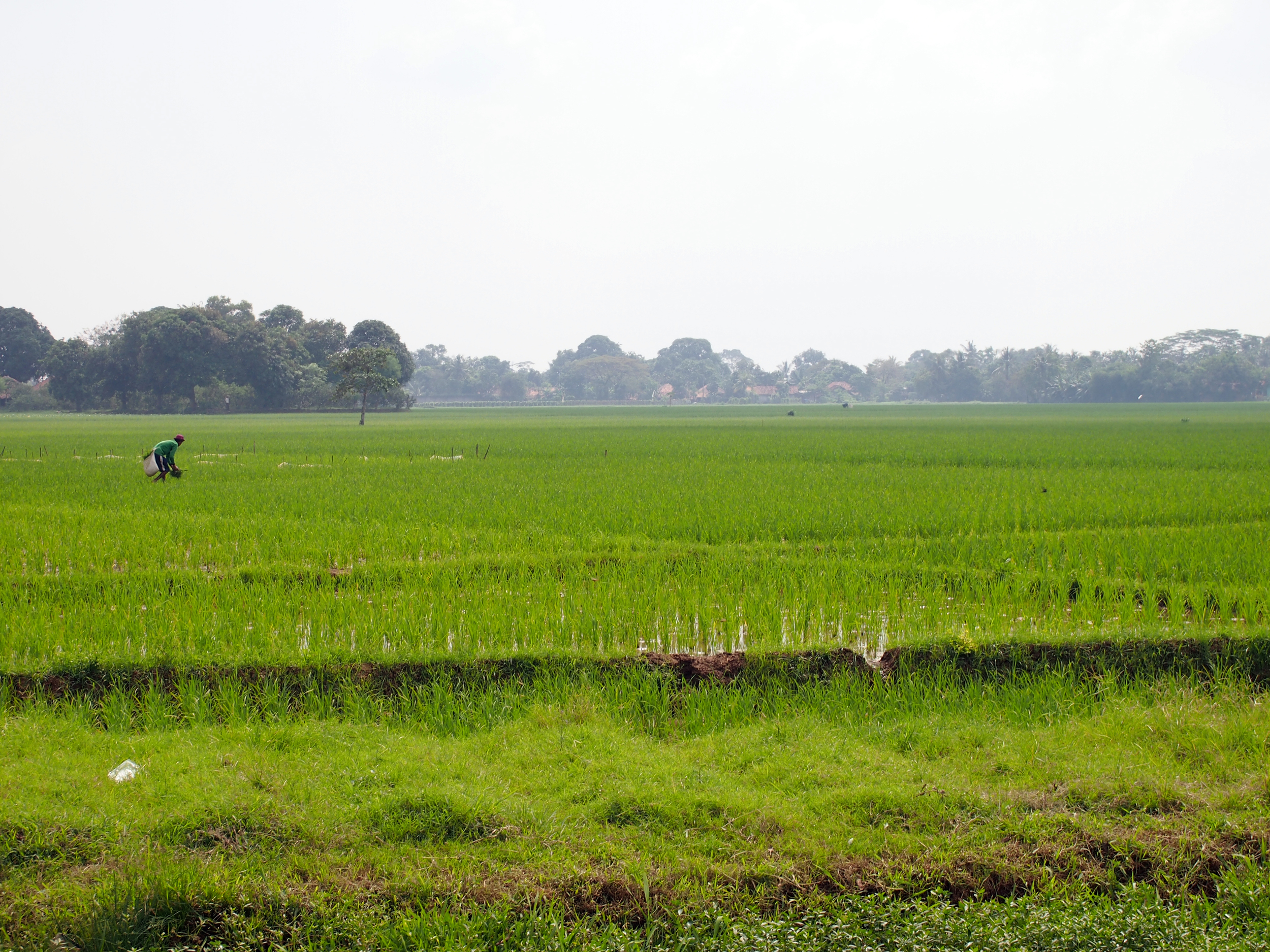A Summer of Rice
Last week, while sitting cross-legged under the hot Indonesian sun and interviewing female rice farmers in Karawang, a district in West Java, Indonesia, I kept thinking back to my fourth grade elementary school class. In fourth grade, my school set up joint bank accounts for students and our parents in order to teach us the value of money, budgeting, and how to balance a checkbook. I had never thought about my first introduction to formal financial services and mechanisms, or appreciated that life-long lesson of how to use ATM cards or apply for loans, until I met some people who never had that opportunity.
Over the course of the week, I discovered that female farmers in Indonesia and their families do not have bank accounts and are at the mercy of moneylenders for loans. Some women use informal savings mechanisms called revolving funds – a zero-interest mechanism that allows members to put money aside every month and receive a year’s worth of savings at strategic times. Other women who aren’t lucky enough to be in female farmer groups with revolving funds stash away small amounts of cash in their homes in order to meet their daily needs.
For two months, I am conducting a gender analysis for Mercy Corps’ Agri-Fin Mobile in order to give female farmers access to agricultural information and financial services through cell phone technology. Women told me they want information about pesticides, fertilizer, and seedlings, and they want formal financial services for savings and credit.
For rice, planting to harvesting takes 90 days of incessant work under the same hot sun: women plant seeds, weed tall grasses, manage pests, use manual tools, and sort the rice post-harvest. Their hands are coarse and strong, and as they served me heaps of steamed, fragrant rice from their own fields, I knew one thing for sure: I will never look at a grain of rice the same way again.

